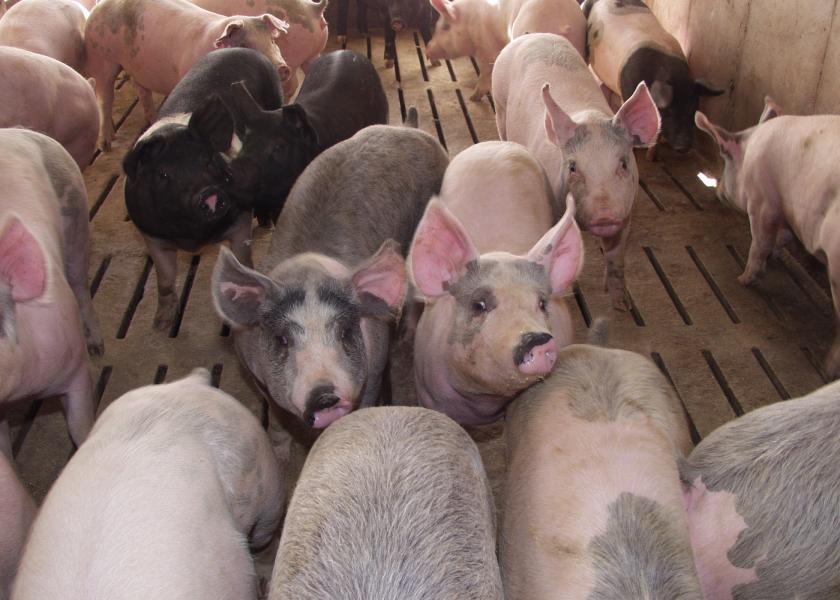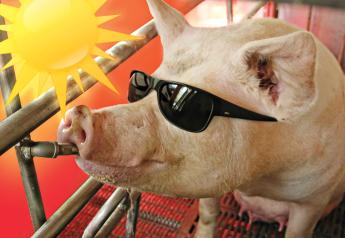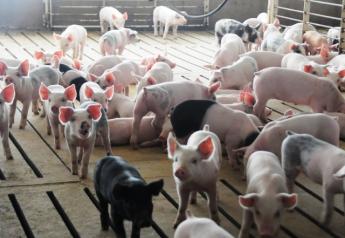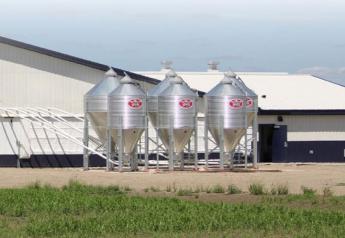Taiwan Lifts Ban on Ractopamine in U.S. Pork Imports

Taiwan has agreed to drop import restrictions on U.S. pork fed ractopamine, an FDA-approved and safe feed ingredient that helps increase the amount of lean meat in hogs.
On Friday, Taiwan President Tsai Ing-wen announced the restrictions, in conformity with international health standards, Taiwan News reports.
Taiwan implemented a ban on U.S. pork raised with ractopamine in 2006. The acceptable residue for ractopamine in meat was not mentioned in the announcement, but it is expected to be revealed soon. In 2012, the Codex Committee established maximum residue limits of 10 ppb for ractopamine in beef and pork.
The National Pork Producers Council (NPPC) has worked for approximately 15 years to eliminate Taiwan’s non-tariff barriers to U.S. pork exports. NPPC said it appreciates that Taiwan is indicating it will soon lift all non-tariff barriers to U.S. pork. The U.S. is the No. 1 pork-exporting nation in the world, exporting pork to more than 100 nations each year.
“U.S. hog farmers are highly dependent on pork exports. The volume of U.S. pork exported would be much higher were it not for tariff and non-tariff trade barriers erected by many nations,” NPPC said in a statement. “NPPC is grateful for the work of U.S. Trade Representative (USTR) and the USDA to tear down barriers to U.S. pork exports all over the world. Indeed, Taiwan’s ban on U.S. pork produced with ractopamine has been at the top of USTR’s list of concerns raised with Taiwan for years.”
Ractopamine is used as a feed ingredient in global beef and pork production. It is approved for use in production by nearly 30 nations and by the CODEX Alimentarius, the international standard-setting organization. Imports of pork raised with ractopamine are accepted by 75 countries. However, some countries such as China prohibit the import of pork from hogs that have been fed the product.
In the fall of 2019, Smithfield Foods, JBS USA and Tyson Foods announced bans on ractopamine in market hogs they buy to maximize export opportunities as African swine fever (ASF) wreaks havoc on China’s pork industry.
“Although ractopamine use by hog farmers is not widespread, it is an option that is safe and acceptable. NPPC will continue to defend the right of U.S. hog farmers to use production processes and products that are safe,” NPPC said in a statement. “NPPC opposes government mandates that, with no scientific backing, dictate production practices and unnecessarily increase food prices and inhibit consumer choice.”
Taiwan’s decision today is an important advancement for science-based standards in that region, Elanco said in a statement.
“Elanco is supportive of any decision that puts safe, proven innovation in the hands of farmers,” Keri McGrath, Elanco, North America Communications said. “We commend Taiwan for putting the health and well-being of its people first by letting science lead legislation.”
Taiwan lessens import restrictions on U.S. beef
In addition, the country will drop import restrictions on U.S. beef from cattle older than 30 months. Since 2006, Taiwan has only imported deboned U.S. beef from cattle aged under 30 months. The U.S. requested expanded access to Taiwan's beef and beef products market following OIE's ruling on the U.S.' status as a "controlled risk" for Bovine Spongiform Encephalopathy (BSE) in 2007.
The two countries have engaged in lengthy negotiations to open up the beef market. In 2010, Taiwan News reports that Taiwan's legislature amended food safety regulations to expand access for U.S. beef but retained a ban on American beef and beef products from cattle aged over 30 months, as well as on specified risk materials.
In 2013, the U.S.' BSE risk status was amended to "negligible" by OIE.
"Given no reports of food safety issues from U.S. beef and pork products and increased demand from Taiwanese, we have decided to expand the access to U.S. beef and pork," Tsai said in Taiwan News.
In her comments, she promised that this would not negatively affect local hog farmers and asked for their support. She said the decisions were made out of consideration of the national interest and strategic development.
U.S. beef and pork issues have been hurdles in the way of free trade talks with Washington, Taiwan News reports. A $0.34 billion fund for Taiwan’s hog industry will be allocated in response to challenges faced by pig farmers and to help improve local pork's export competitiveness.
Tsai said health authorities will continue to conduct strict border checks on U.S. pork and beef imports. Rules for country of origin labeling will be closely enforced.
Read more from Farm Journal's PORK:
Ractopamine’s Back on the Shelf, Now What?
Protests Erupt as Taiwan Reconsiders Ractopamine Ban
JBS to Remove Ractopamine from Pork Supply Chain in U.S.







